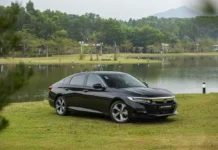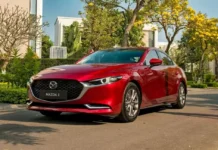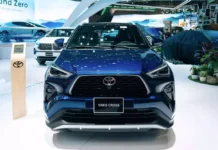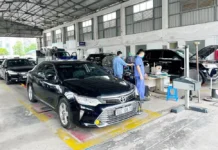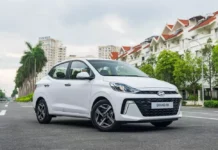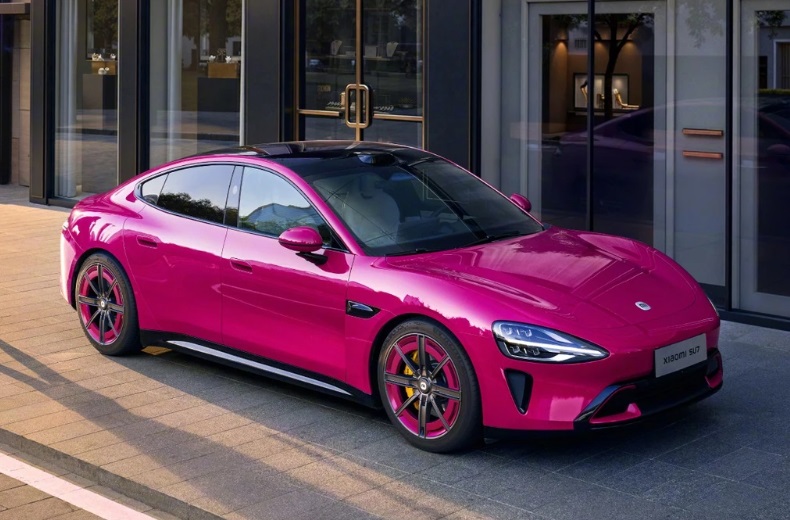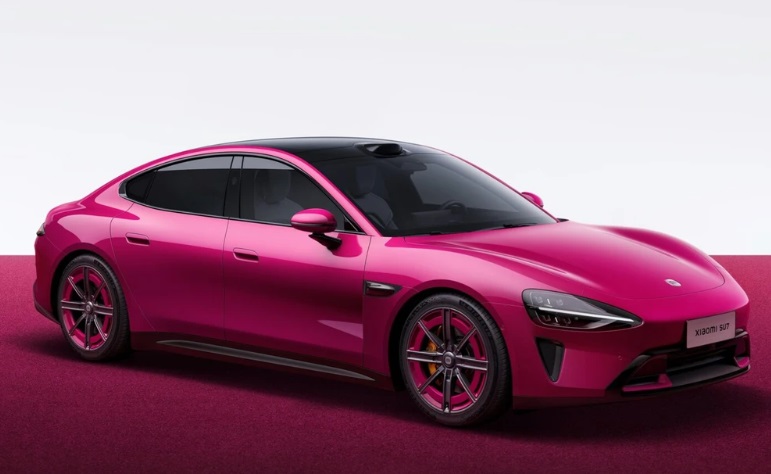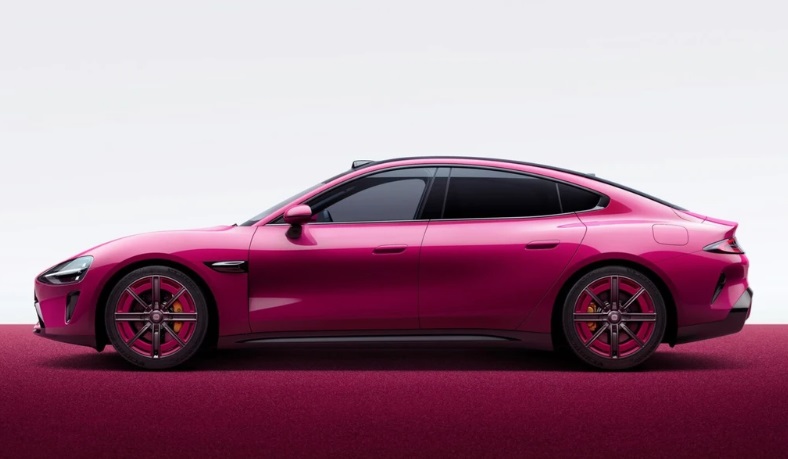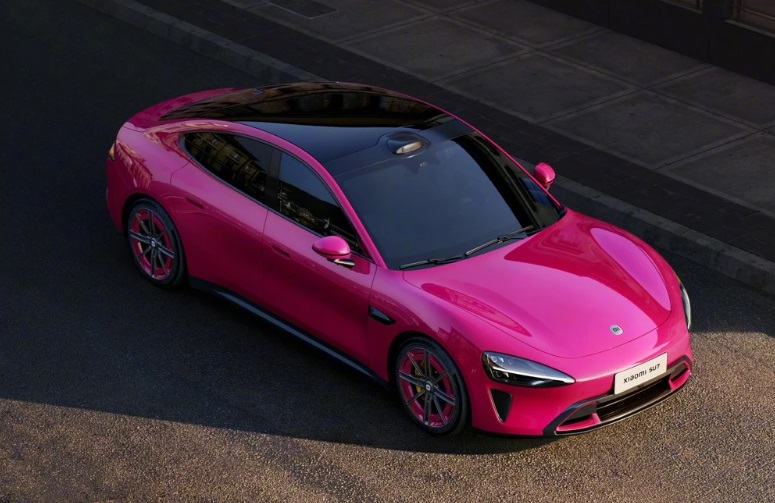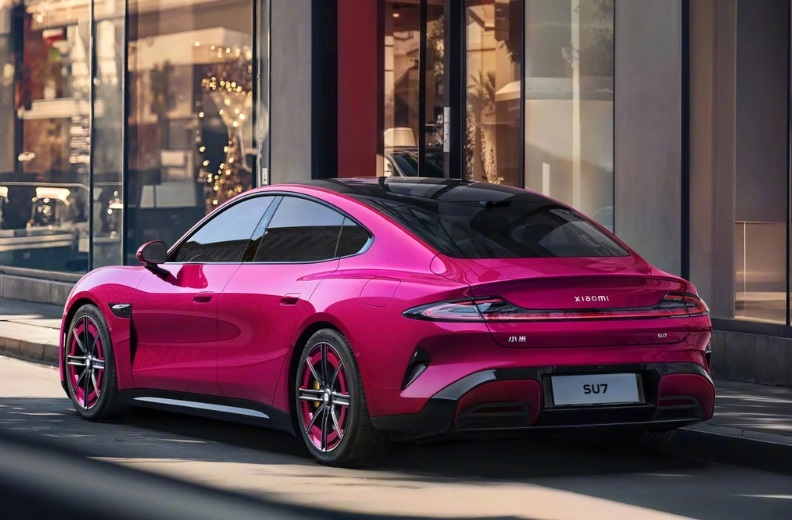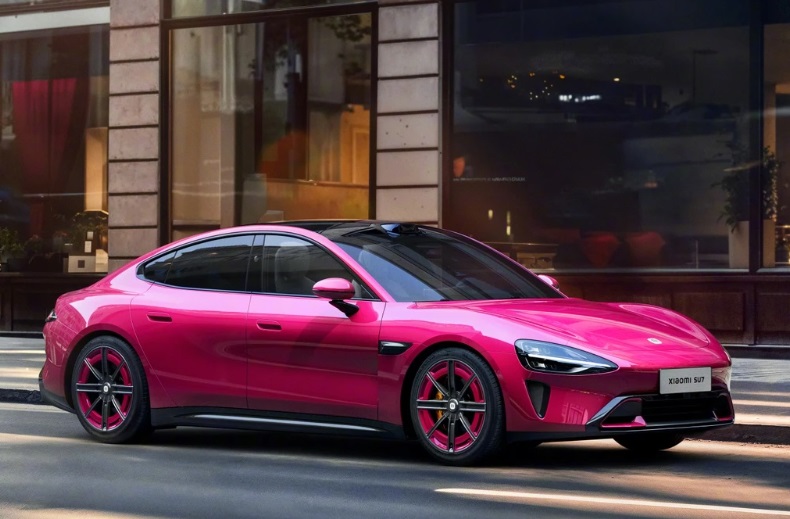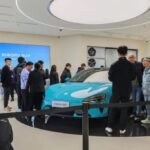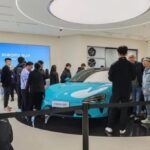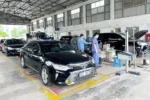Xiaomi recently unveiled a special edition of its SU7 sedan to commemorate its 15th anniversary.
The Xiaomi SU7 15th Anniversary edition comes in 9 diverse exterior color options: Sea Blue, Green, Mineral Grey, Asteroid Grey, Brilliant Purple, Basalt Grey, Lava Orange, and Pearl White. Along with these, it offers 4 interior color choices: Galaxy Grey, Twilight Red, Misty Purple, and Obsidian Black.
This limited edition also features a striking Brilliant Magenta exterior color.
Xiaomi offers 4 new wheel designs for the SU7. Customers opting for the 20-inch aerodynamic 8-spoke wheels with Brilliant Magenta accents and Brembo brake calipers will need to pay an additional 6,000 yuan (approximately 20.8 million VND).
Apart from these additions, the Xiaomi SU7 15th Anniversary edition remains unchanged from the standard SU7.
The SU7 is a mid-size sedan with dimensions of 4,997 x 1,963 x 1,440/1,455 mm (length x width x height) and a wheelbase of 3,000 mm. These dimensions make it larger than the Tesla Model 3. Xiaomi claims that the SU7 has an impressive drag coefficient of Cd 0.195, the lowest among mass-produced cars worldwide.
As a “darling” of Xiaomi – the famous smartphone manufacturer in the world, it is no surprise that the SU7 is packed with advanced technologies, including LiDAR sensors, 11 HD cameras, 3 millimeter-wave radars, and 12 ultrasonic radars, supporting semi-autonomous driving and automatic parking.
The standard Xiaomi SU7 is equipped with an electric motor that produces 299 horsepower. The motor is paired with a 73.6 kWh battery pack, offering a maximum range of up to 750 km per charge. Opting for the 20-inch wheels reduces the range to 628 km.
On the other hand, the SU7 Pro features the same 299-horsepower electric motor but combines it with a larger 94.3 kWh battery pack, resulting in a maximum range of 830 km per charge. With the 20-inch wheels, the range decreases to 758 km.
The top-of-the-line Xiaomi SU7 Max is equipped with two electric motors, generating a combined output of 673 horsepower. The motors are paired with a 101 kWh battery pack and an all-wheel-drive system, delivering a maximum range of 800 km per charge. With the 20-inch wheels, the range drops to 750 km.
The acceleration figures for the standard, Pro, and Max versions are 5.28 seconds, 5.7 seconds, and 2.78 seconds, respectively. The standard version is equipped with the Xiaomi Pilot Pro safety system, while the Pro and Max versions feature the Xiaomi Pilot Max technology.
The Xiaomi SU7 15th Anniversary edition is priced at 232,900, 262,900, and 314,900 yuan (approximately 806.3 million – 910.19 million and 1.091 billion VND) for the standard, Pro, and Max versions, respectively.
TH (Tuoitrethudo)

